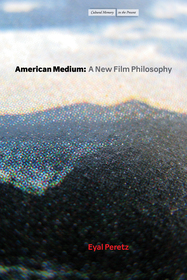
American Medium – A New Film Philosophy
A New Film Philosophy
Series: Cultural Memory in the Present;
- Publisher's listprice GBP 20.99
-
10 027 Ft (9 550 Ft + 5% VAT)
The price is estimated because at the time of ordering we do not know what conversion rates will apply to HUF / product currency when the book arrives. In case HUF is weaker, the price increases slightly, in case HUF is stronger, the price goes lower slightly.
- Discount 10% (cc. 1 003 Ft off)
- Discounted price 9 025 Ft (8 595 Ft + 5% VAT)
Subcribe now and take benefit of a favourable price.
Subscribe
10 027 Ft

Availability
Not yet published.
Why don't you give exact delivery time?
Delivery time is estimated on our previous experiences. We give estimations only, because we order from outside Hungary, and the delivery time mainly depends on how quickly the publisher supplies the book. Faster or slower deliveries both happen, but we do our best to supply as quickly as possible.
Product details:
- Edition number 1
- Publisher MK – Stanford University Press
- Date of Publication 18 November 2025
- ISBN 9781503644984
- Binding Paperback
- No. of pages248 pages
- Size 229x152x13 mm
- Weight 354 g
- Language English
- Illustrations 10 halftones 700
Categories
Long description:
"
In this masterful new work, film critic and philosopher Eyal Peretz forges a new connection between the concept of ""America"" and the medium of film. Through exemplary close readings of six fundamental American films—John Ford's Young Mr. Lincoln and The Man Who Shot Liberty Valance, Francis Ford Coppola's The Godfather, Steven Spielberg's West Side Story, and Sofia Coppola's Lost in Translation and Marie Antoinette—Peretz demonstrates the way the connection between ""America"" and film is enabled through the development of a philosophical concept of medium that allows both ""America"" and film to be thought anew.
As Peretz shows, ""America"" can be understood as a medium providing a new framework for understanding human life in modernity—an era that's seen the demise of theology (or the ""death of god,"" as Nietzsche declared). Through incisive readings of the films mentioned above, Peretz shows each to function in its own singular fashion as an allegory of the way that ""America""—that is, the demand to ground human life non-theologically—becomes the notion around which the medium of Hollywood film circulates.
" More



